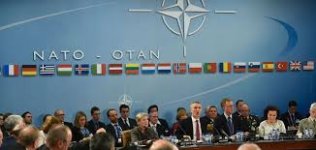In a world marked by cyber threats, resurgent authoritarianism, and shifting global alliances, the question of whether NATO remains necessary isn’t just relevant — it’s urgent.
The North Atlantic Treaty Organization (NATO) was born in 1949 as a bulwark against Soviet aggression. With the Cold War over, skeptics argue it has outlived its purpose. But to dismiss NATO as obsolete is to underestimate today’s evolving threats. Russia’s invasion of Ukraine, China’s growing military influence, and increasing global instability all highlight a need for collective security.
Yet, NATO isn’t flawless. Internal disagreements, unequal defense spending, and differing national interests often undermine unity. Former U.S. President Trump famously called it “obsolete,” and many nations still fail to meet the 2% GDP defense spending benchmark. If NATO is to thrive, it must adapt—not dissolve.
NATO is more than a military alliance. It’s a symbol of Western unity, a deterrent against aggression, and a platform for intelligence sharing, crisis response, and strategic coordination. Disbanding it would leave a vacuum — one that authoritarian powers would be all too eager to fill.
However, reform is crucial. NATO must modernize to confront non-traditional threats: cyberattacks, misinformation campaigns, energy blackmail, and space militarization. It must also manage internal trust, especially with newer members fearing abandonment and older ones burdened by domestic politics.
To remain relevant, NATO must act smarter, not just stronger. It needs faster response mechanisms, more transparent burden sharing, and expanded partnerships with non-member democracies. A 21st-century alliance cannot rely on 20th-century models.
So, is NATO still necessary? Yes. But it must earn that necessity every single day.
The North Atlantic Treaty Organization (NATO) was born in 1949 as a bulwark against Soviet aggression. With the Cold War over, skeptics argue it has outlived its purpose. But to dismiss NATO as obsolete is to underestimate today’s evolving threats. Russia’s invasion of Ukraine, China’s growing military influence, and increasing global instability all highlight a need for collective security.
Yet, NATO isn’t flawless. Internal disagreements, unequal defense spending, and differing national interests often undermine unity. Former U.S. President Trump famously called it “obsolete,” and many nations still fail to meet the 2% GDP defense spending benchmark. If NATO is to thrive, it must adapt—not dissolve.
NATO is more than a military alliance. It’s a symbol of Western unity, a deterrent against aggression, and a platform for intelligence sharing, crisis response, and strategic coordination. Disbanding it would leave a vacuum — one that authoritarian powers would be all too eager to fill.
However, reform is crucial. NATO must modernize to confront non-traditional threats: cyberattacks, misinformation campaigns, energy blackmail, and space militarization. It must also manage internal trust, especially with newer members fearing abandonment and older ones burdened by domestic politics.
To remain relevant, NATO must act smarter, not just stronger. It needs faster response mechanisms, more transparent burden sharing, and expanded partnerships with non-member democracies. A 21st-century alliance cannot rely on 20th-century models.
So, is NATO still necessary? Yes. But it must earn that necessity every single day.

